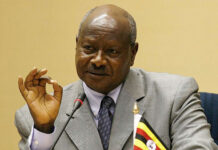With an economy further dipping into bigger problems, South Africa is planning projects worth $20.5 billion in sectors such as transport, energy and water as it looks to drive an economic recovery from the coronavirus crisis.
The ANC’s treasurer-general, Paul Mashatile told a video conference organised by think-tank Chatham House, that the infrastructure projects will soon be approved by President Cyril Ramaphosa’s cabinet after talks with the private sector and multilateral development banks.
What’s the gist? South Africa is the continent’s most industrialised economy and had gone into recession before COVID-19 became a pandemic. And now, the central bank is predicting a seven percent gross domestic product contraction this year and some economists are forecasting a double-digit budget deficit.
Over 400 Malawians escape isolation centre
As the continent hopes to stop the spread of the coronavirus and look to counter predictions of mass deaths, more than 400 people have escaped from a coronavirus quarantine centre in Blantyre, Malawi, after complaining about its poor state.
The 441 Malawians were bussed home Monday, from South Africa, where they were left stranded after the country closed its borders in March to limit the spread of the coronavirus.
Go deeper: There have been other reports of patients escaping from isolation centres across Africa, and it was recently reported that Ugandan authorities arrested seven out of 25 escapees from a quarantine centre. The issue with these escapees is that they usually have the same complaints: poor facilities at the isolation centres. Misconceptions take precedence in other cases, where asymptomatic patients don’t want to accept their test results.
Liberia’s Weah talks of bleak future of African sports
Liberian president and former African and World Footballer of The Year, George Weah has warned that the future of sports on the African continent after the coronavirus will be “bleak”.
Speaking at a recent special webinar organised by the Africa Sports Ventures Group, Weah said that the organising of sports events or competitions behind closed doors or with minimal crowds will result in a major reduction in sponsorship revenues as companies reduce spending in the wake of coronavirus-inflicted losses.
What happens now? The continent is still trying to grapple with the fact that the coronavirus is affecting economies and have insisted that worship centres and schools remains shut. With a yet grown sports culture, questions arise as what will happen now that companies are cutting funding and sports associations want to restart with empty pitches.
27 reportedly killed in Mali attacks
There are reports from Mali that 27 people have been killed during three attacks on villages which are home to people from the Dogon ethnic group.
Local officials believed the three attacks, between Tuesday night and Wednesday evening, had been carried out by Islamist militants, who often say they are defending Fulani herders against rival Dogon farmers.
It’s continental: Through the week, Africa has reported too many mass killings. Nigeria reported 60 killings in Sokoto, and between May 19 to 24, herdsmen attacked villages in Southern Kaduna, killing five. In Libya, 30 people were killed by the family of a trafficker who was killed by migrants. These killings happen and almost nothing is done except ‘we sympathise with the families whose…’
‘Call for Africa to unite to fight the coronavirus’
The head of the Africa Centre for Disease Control and Prevention, John Nkengasong, has called for a greater effort to counter coronavirus at a time when there is evidence it is increasingly being spread within the community in countries across the continent.
He said it was time to test people with flu-like symptoms and to increase measures like social distancing, the wearing of masks and hand washing.
Why uniting is important: So far, the coronavirus has multiplied more slowly in Africa than in Asia or Europe. Experts believe this could be partly due to Africa’s young demography. However, predictions are difficult to make on a continent where there have now been around 120,000 cases, from a population of more than one billion.






